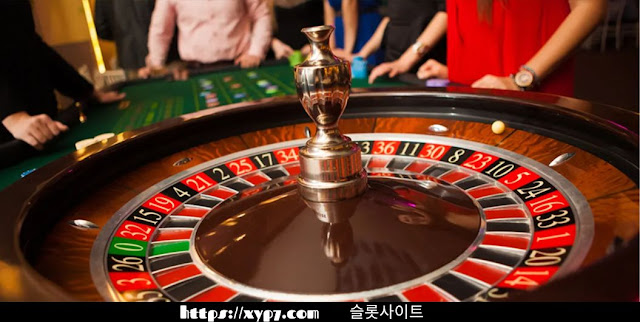The Role of Probability in Online Roulette
Online roulette is a popular casino game known for its simplicity and excitement. But beneath the spinning wheel and betting chips lies a key concept: probability. Understanding how probability works in online roulette can help players make informed decisions and improve their gaming strategies. This guide will break down the role of probability in online roulette, helping you to grasp its significance in this thrilling 카지노사이트 game.
What is Probability in Online Roulette?
Defining Probability
Probability refers to the likelihood that a certain event will occur. In the context of online roulette, it’s about the chances that the ball will land on a specific number, color, or section of the wheel. Roulette offers various betting options, each with different probability levels. Understanding these odds can help players assess risks and make smarter bets.
The Roulette Wheel Layout
A roulette wheel typically comes in two versions: European and American.
- European roulette features 37 slots (numbers 1 to 36 and a single zero).
- American roulette has 38 slots (numbers 1 to 36, a single zero, and a double zero).
The extra double zero in American roulette slightly shifts the probability in favor of the house, making European roulette a more favorable option for players.
How Probability Affects Betting Options in Roulette
Online roulette offers various betting options, each with its own probability of winning. Players can bet on individual numbers, groups of numbers, or broader categories like colors or odd/even numbers. Here’s a closer look at how probability affects different types of bets:
Inside Bets
Straight-up Bet: Betting on a single number has the lowest probability but the highest payout. In European roulette, the probability of winning a straight-up bet is 1 in 37, or about 2.70%. In American roulette, it’s 1 in 38, or about 2.63%.
Split Bet: Betting on two adjacent numbers increases your chances slightly, with a probability of 5.41% in European roulette and 5.26% in American roulette.
Street Bet: Betting on three numbers in a row gives a winning probability of 8.11% in European roulette and 7.89% in American roulette.
Corner Bet: Betting on four numbers arranged in a square has a probability of 10.81% in European roulette and 10.53% in American roulette.
Six Line Bet: Betting on two rows of three numbers each offers a 16.22% chance in European roulette and 15.79% in American 온라인카지노 roulette.
Outside Bets
Red or Black: Betting on the color of the winning number is one of the most popular options. The probability of winning is about 48.6% in European roulette and 47.37% in American roulette, accounting for the presence of the zero(s).
Odd or Even: Similar to betting on color, this bet covers half the numbers (excluding the zero), with a probability of winning around 48.6% in European roulette and 47.37% in American roulette.
High or Low: Betting on whether the winning number will be between 1-18 (low) or 19-36 (high) offers the same probability as betting on red/black or odd/even.
Dozens: Betting on a group of 12 numbers (1-12, 13-24, or 25-36) has a winning probability of 32.4% in European roulette and 31.58% in American roulette.
Columns: This bet covers one of the three vertical columns of 12 numbers on the table layout, with the same winning probability as the dozens bet.
House Edge: The Casino's Advantage
The presence of the zero (and the double zero in American roulette) gives the house its edge. The house edge in European roulette is 2.70%, while in American roulette, it jumps to 5.26%. This means that, over time, the casino will make a profit of 2.70% or 5.26% on every bet made, depending on the version of roulette being played.
The house edge is directly related to probability. For example, while a bet on red/black has close to a 50% chance of winning, the zero (or double zero) ensures the house maintains a slight advantage. Understanding the house edge can help players make more informed decisions and choose betting strategies that suit their risk tolerance.
The Gambler's Fallacy: A Common Misunderstanding
Many online roulette players fall into the trap of the gambler’s fallacy—the mistaken belief that past outcomes influence future results. For example, if the ball lands on black five times in a row, a player might think that red is "due" to win. However, roulette spins are independent events, meaning the probability of landing on red or black remains the same each time.
Understanding the gambler’s fallacy is crucial for online roulette players, as it prevents making decisions based on flawed reasoning. Each spin of the wheel is a separate event, and the probability of any specific outcome remains unchanged regardless of previous results.
Strategies Based on Probability in Online Roulette
Some players use probability-based strategies to try and improve their odds in online roulette. While no strategy guarantees a win, these methods can help players manage their bets and risks more effectively.
The Martingale Strategy
The Martingale strategy is one of the most well-known betting systems. It involves doubling your bet after every loss, with the idea that a win will eventually cover all previous losses. This strategy relies on the assumption that probability will eventually balance out. However, it can be risky, as players may reach the table’s betting limit or exhaust their bankroll before hitting a win.
The Reverse Martingale Strategy
In contrast to the Martingale, the Reverse Martingale involves doubling your bet after each win. This strategy focuses on capitalizing on winning streaks while limiting losses during losing streaks. Again, it’s based on the idea that probability will eventually favor the player.
The D'Alembert System
The D'Alembert system is a more conservative strategy where players increase their bet by one unit after a loss and decrease it by one unit after a win. This strategy is based on the belief that wins and losses will even out over time. While it’s less risky than the Martingale, it’s also less likely to yield significant profits.
Conclusion: Mastering Probability in Online Roulette
Probability plays a central role in online roulette, affecting everything from the odds of winning specific bets to the overall house edge. By understanding the probabilities behind different betting options, players can make more informed decisions and develop strategies that suit their risk tolerance and bankroll. While no strategy can guarantee success, a solid grasp of probability can enhance your online roulette experience and increase your chances of making smart, calculated 바카라사이트 bets.




Comments
Post a Comment